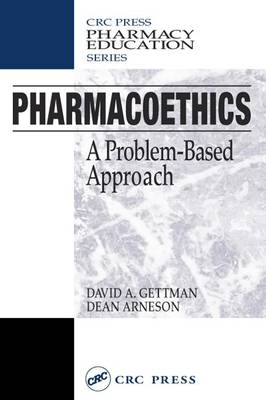
- Retrait gratuit dans votre magasin Club
- 7.000.000 titres dans notre catalogue
- Payer en toute sécurité
- Toujours un magasin près de chez vous
- Retrait gratuit dans votre magasin Club
- 7.000.0000 titres dans notre catalogue
- Payer en toute sécurité
- Toujours un magasin près de chez vous
Description
Due to the changing nature of the practice of pharmacy, today's pharmacists, pharmaceutical scientists, and researchers are faced with an increasing amount of ethical dilemmas. Pharmacoethics: A Problem Based Approach not only introduces the current ethical issues, it also provides decision making tools that can be applied to any ethical issue that may arise in the future. The authors have identified seven clinical and research ethical competencies that pharmacists will face in their practice: professional responsibility, patient's rights, privacy and confidentiality, truth telling, reproductive ethics, distributive justice, and research ethics. They present 18 problem-based learning cases drawn from the literature and developed around these competencies. These cases use ill-structured ethical problems to demonstrate the types of dilemmas found in modern pharmaceutical practice and help readers acquire the critical decision making and communication skills they need to deal with them. Unlike most texts that concentrate only on ethical principles and ethical decision-making, this book goes a step further. It demonstrates how to use motivational interviewing techniques to work through difficult ethical situations and attain a positive clinical, behavioral, and social outcome. Exploring issues that range from professional responsibility to patient's rights, Pharmacoethics: A Problem Based Approach provides a framework for developing the critical set of patient-related skills necessary for the practice of pharmacy.
Spécifications
Parties prenantes
- Auteur(s) :
- Editeur:
Contenu
- Nombre de pages :
- 468
- Langue:
- Anglais
- Collection :
Caractéristiques
- EAN:
- 9781587160356
- Date de parution :
- 29-04-03
- Format:
- Livre broché
- Format numérique:
- Trade paperback (VS)
- Dimensions :
- 162 mm x 235 mm
- Poids :
- 675 g

Les avis
Nous publions uniquement les avis qui respectent les conditions requises. Consultez nos conditions pour les avis.






